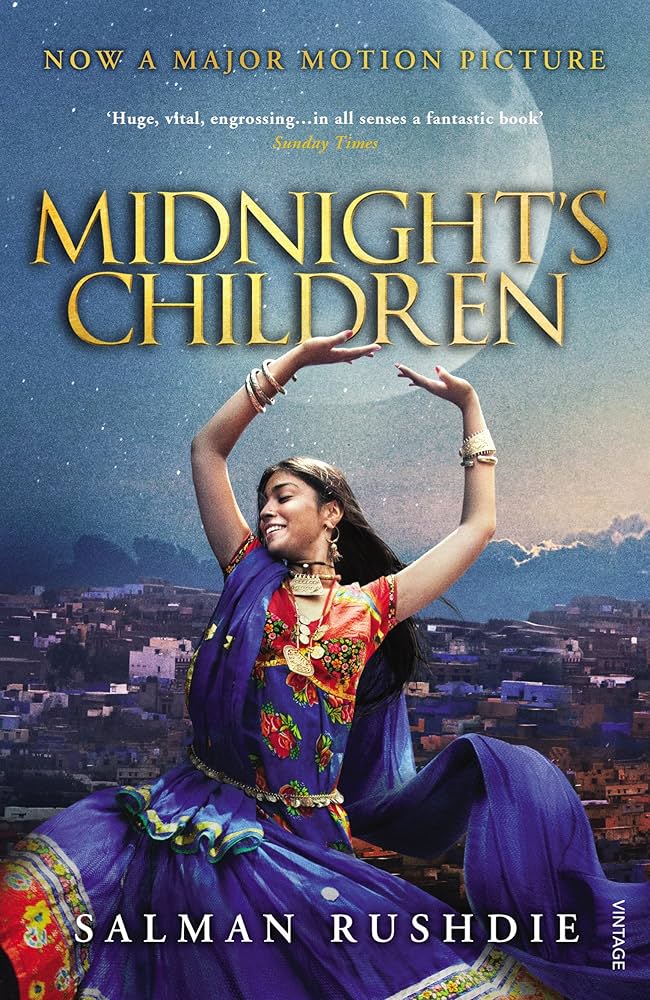Note: If you wish to receive, via e-mail, (1) my weekly newsletter or (2) daily copies of these posts, notify me at rrbates1951@gmail.com and indicate which you would like. I promise not to share your e-mail address with anyone. To unsubscribe, send me a follow-up email.
Friday
It’s been unsettling to teach Midnight’s Children following Donald Trump’s presidential victory. That’s because Salman Rushdie’s novel, which begins with high hopes for post-colonial India and ends with the election of an authoritarian leader, parallels our own story a little too closely. Throughout the novel, we see the increasing fragmentation and polarization of the Indian state, which is sometimes torn apart by religious infighting, sometimes by language wars, sometimes by foreign wars, and sometimes (when “the Widow,” Indira Gandhi, comes to power) by the imposition of forced sterilization and other authoritarian measures.
What I want to focus on today, however, is Rushdie’s account of amnesia in a victimized population. That’s because I think America’s own amnesia played a role in Trump’s victory. Just as America forgot about Trump’s abysmal handling of the pandemic and his orchestrating of the coup attempt, so narrator Saleem Sinai discovers that people have forgotten the bulldozing of the “Magician’s Ghetto” which contains a wonderful cast of characters:
The conjurers and other artistes marched beside the troops, entertaining the crowds; there were acrobats forming human pyramids on moving carts drawn by white bullocks; there were extraordinary female contortionists who could swallow their legs up to their knees; there were jugglers who operated outside the laws of gravity, so that they could draw oohs and aahs from the delighted crowd as they juggled with toy grenades, keeping four hundred and twenty in the air at a time; there were card-tricksters who could pull the queen of chiriyas (the monarch of birds, the empress of clubs) out of women’s ears; there was the great dancer Anarkali, whose name meant ‘pomegranate-bud’, doing leaps twists pirouettes on a donkey-cart while a giant piece of silver nose-jewellery jingled on her right nostril…
Rushdie uses such characters to capture the color and magic of India, and it is to the imagination wonderland that Saleem escapes from India’s traumatizing war with Pakistan. There he marries the wonderful Parvati-the-Witch, who like him possessed special powers from having been born between midnight and 1 a.m. on the day India gained its independence from England (August 15, 1947). There they marry and have a child.
Because the son of “the Widow” thinks that the Magician’s Ghetto is an eyesore, however (Donald Trump, Jr.?), he has it bulldozed, during which catastrophe Parvati dies. Their son, fortunately, is rescued and represents a hope for the future that I’ll explore in a future post. But what occurs first is that, following the destruction of their home, the dispersed magicians forget about this idyllic home—just as much of the world (not only Americans) has forgotten about the pandemic:
[W]hen I returned to find Picture Singh beaming in the shadow of a railway bridge, it rapidly became clear that the magicians, too, were losing their memories. Somewhere in the many moves of the peripatetic slum, they had mislaid their powers of retention, so that now they had become incapable of judgment, having forgotten everything to which they could compare anything that happened. Even the Emergency was rapidly being consigned to the oblivion of the past, and the magicians concentrated upon the present with the monomania of snails. Nor did they notice that they had changed; they had forgotten that they had ever been otherwise, Communism had seeped out of them and been gulped down by the thirsty, lizard-quick earth; they were beginning to forget their skills in the confusion of hunger, disease, thirst and police harassment which constituted (as usual) the present. To me, however, this change in my old companions seemed nothing short of obscene… I, who could remember every hair on the heads of jailers and surgeons, was deeply shocked by the magicians’ unwillingness to look behind them. ‘People are like cats,’ I told my son, ‘you can’t teach them anything.’
Sadly, when people forget catastrophes, they sometimes blame the subsequent problems on those in power taxed with cleaning up the mess. That’s not the entire reason why the Democrats lost to Trump, but since incumbents have been losing elections all over the world, it’s part of the explanation.


